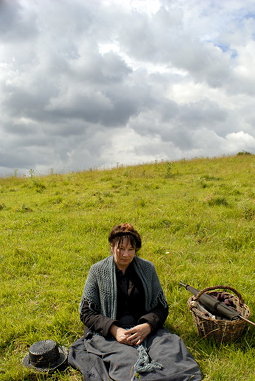There are exceptions. Here, Provost makes the case that Séraphine de Senlis was a visionary. That is not what the other residents of Senlis would have said. Making a meager living as a housekeeper and laundress, Séraphine (Yolande Moreau) is, when we first encounter her, an eccentric and slightly pathetic local character, a figure of pity and sometimes mockery, her dignity protected by a temperament that is at once sharp and childlike, and by a talent that she views as guided by angels.
The mystery of Séraphine de Senlis — who died in a mental hospital in 1942 and whose work survives in some of the world’s leading museums — is left intact at the end of Séraphine. Rather than trying to explain Séraphine, the film accepts her.
A. Scott, The New York Times


